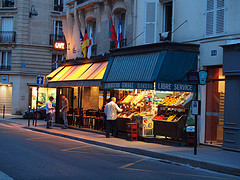Avoid Credit Card Problems When Traveling Overseas

(zoetnet)
Most credit cards in Europe have an embedded PIN chip in them, called an EMV card. Almost no American credit cards do. This causes big problems for Americans traveling in Europe but there are a few ways to minimize the hassle.
It’s very common to swipe your American credit card over there and have the transaction be denied either because of the system itself or because the cashier doesn’t know how to work it. NYT says the best thing to do is carry several credit cards and if one doesn’t work, politely ask the merchant to try another one. You may have to try several times.
However, that doesn’t help when dealing with things like a telephone, parking meter, or gas pump that can’t recognize a magnetic-strip only card. You can’t charm a kiosk.
As a last resort, you can use a preloaded debit MasterCard from Travelex called the “Chip and PIN Cash Passport.” It has the necessary chip but also high fees. Last May they were charging a rate of $1.50 per Euro, while the spot rate was $1.42, in excess of even just the basic normal 3% foreign exchange fee charged by most credit card providers. Speaking of, here’s a few credit cards that waive those exchange fees.
Wells Fargo and Chase are testing out chip and PIN cards this year with a very limited selection of high-value travelers but the rest of us will have to wait to see if they roll it out to a wider audience. Either that, or get a job with North Carolina or the U.N. Their employee credit unions offer EMV cards to their members.
How to Avoid Credit Card Problems Abroad [NYT]
PREVIOUSLY
Wells Fargo To Test Chip Embedded Cards With Travelers
Want more consumer news? Visit our parent organization, Consumer Reports, for the latest on scams, recalls, and other consumer issues.

